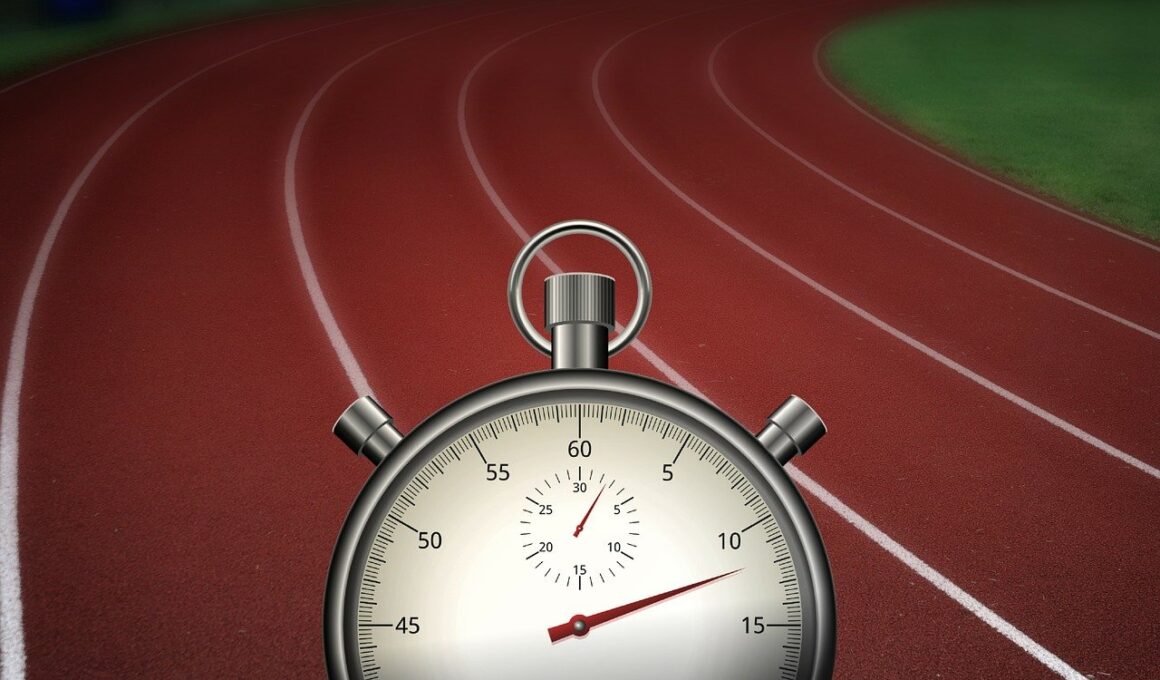The Power of Gratitude Journals in Athletic Training
Gratitude journals have emerged as a transformative tool for athletes aiming to enhance their training and performance. By incorporating gratitude into their daily routines, athletes can develop a more positive mindset that fosters resilience. Regularly acknowledging and documenting moments of appreciation helps in cultivating a sense of fulfillment, allowing athletes to maintain motivation throughout challenging training sessions. Moreover, keeping track of positive experiences encourages reflection on personal progress and achievements. This practice not only boosts morale but also enhances overall well-being, which is essential in high-pressure sports environments. Establishing a gratitude journaling habit cultivates emotional literacy, empowering athletes to identify and express feelings more articulately. Journals serve as a safe space for self-exploration, leading to insights about their motivations. Over time, consistent journaling may help reduce anxiety levels, promoting a focused and positive attitude during competitions. In this article, we will explore the benefits of gratitude journals specifically in the context of athletic training. By examining various aspects of maintaining a gratitude journal, athletes can discover its profound impact on their performance and mental strategies.
Benefits of Journaling for Athletes
One of the primary benefits of keeping a gratitude journal is increased self-awareness among athletes. Writing down daily reflections allows individuals to gain deeper insights into their thoughts and emotions. By noting what they are grateful for, athletes can reconnect with their core motivations, leading to a stronger sense of purpose in their training routines. Furthermore, the continuous practice of gratitude journaling fosters a growth mindset, wherein athletes view challenges as opportunities for improvement rather than obstacles. This mentality is crucial for overcoming setbacks and achieving long-term goals. Additionally, gratitude journals encourage athletes to celebrate small wins, reinforcing positive behaviors and maintaining a constructive attitude toward training. Research has shown that engaging in gratitude can lead to improved mental health, as individuals experience lower levels of stress and anxiety. With minimized distractions from negative thoughts, athletes can concentrate better during training. As mental resilience increases, performance naturally follows suit. Hence, incorporating gratitude into their daily practices not only benefits athletes in the short term but also contributes to sustained success over their sports careers.
Writing in a gratitude journal strengthens the mental game of athletes by fostering a sense of connection within their communities. Sport is often about teamwork and collaboration, and practicing gratitude can help athletes appreciate the support they receive from coaches, teammates, and fans. Acknowledging contributions from others enhances bonds, resulting in a more cohesive environment that positively influences performance. When individuals recognize their dependence on a supportive network, they are more likely to remain motivated and committed to their goals. Furthermore, gratitude journaling encourages athletes to reflect on the relationships formed through shared experiences. This practice cultivates an attitude of appreciation that can bridge differences, enhance teamwork, and encourage open communication. Consequently, athletes become more empathetic and understanding of each other’s challenges. By fostering these connections, gratitude journals nurture a healthy team culture, which is crucial during intense training periods. The ability to articulate appreciation opens the door to constructive feedback and personal growth. A united team with strong interpersonal relationships can effectively tackle challenges together, leveraging their collective strengths in pursuit of shared aspirations.
Setting Goals with Gratitude
Integrating goal setting with gratitude journaling can be a powerful dynamic for athletes. As they envision their ambitions, incorporating gratitude into their goal-setting process provides clarity and motivation. This alignment helps athletes to articulate specific, measurable goals while remaining rooted in positivity. More than simply stating aspirations, they can pair goals with daily reminders of what they value most, creating an inspiring backdrop for their pursuits. For example, an athlete might set a performance goal for the upcoming season and recognize the coaches who support their improvement. Writing about gratitude in the context of ambitions solidifies their commitment and dedication to progress. Over time, as they achieve their goals, athletes will have a meaningful record of their journey, enriched by gratitude. Reflecting on the process allows them to see the bigger picture, appreciating each milestone along the way. Such reflections foster a deeper connection to their athletic careers, shaping their identities and fostering a lifelong love for their sport. This method retains a strong emphasis on growth, showcasing how gratitude can intertwine seamlessly with personal ambitions.
Maintaining a gratitude journal allows athletes to cultivate resilience through the inevitable ups and downs of sports. As they face setbacks like injuries or unforeseen losses, journaling helps individuals process these experiences by documenting their feelings and the supportive elements present in their lives. Rather than falling into despair, athletes can shift their focus toward appreciation, moving beyond adversity by identifying what they can learn from difficult situations. By exploring the emotions associated with setbacks, athletes grow more attuned to their mental states and learn how to navigate challenging emotions positively. This skill contributes to overall psychological resilience, allowing athletes to recover faster and come back stronger. Furthermore, incorporating daily gratitude practices prepares athletes for challenges, as they actively recognize what brings them joy and motivation. As they confront obstacles, the positive experiences documented in their journals serve as reminders of their strength. A gratitude journal can thus be a powerful tool in overcoming adversity, transforming setbacks into opportunities for growth. Over time, this process reinforces a mindset of perseverance, crucial for achieving sustainable success in competitive sports.
Creating a Consistent Practice
To maximize the benefits of gratitude journaling in athletic training, consistency is key. Athletes should establish a routine for journaling, whether it be daily or weekly, ensuring they set aside dedicated time for reflection. This practice can seamlessly fit into training schedules, allowing athletes to embrace gratitude without feeling overwhelmed. Importantly, athletes should personalize their journaling process, as each experience of gratitude is unique to the individual. Some may prefer bullet points, while others might engage in descriptive writing. Finding a style that resonates is crucial for making journaling a sustainable practice. Additionally, keeping the journal accessible can enhance the likelihood of adherence. Whether using a physical notebook or digital app, having it at hand encourages regular engagement. Athletes might also consider integrating prompts or themes for each journaling session, guiding their reflections more purposefully. For instance, focusing on gratitude for specific aspects of their training or the influence of teammates can deepen insights. By building a consistent practice centered on gratitude, athletes reinforce positive mental habits that cultivate long-term benefits in performance, resilience, and overall well-being.
In conclusion, the power of gratitude journals in athletic training cannot be overstated, as such practices lead to profound growth on and off the field. The benefits of keeping a gratitude journal extend far beyond a simple record of appreciation. By developing self-awareness, encouraging communication and connection among team members, and fostering a growth mindset, these journals transform the way athletes engage with their training. Furthermore, they create pathways to set and achieve meaningful goals, enabling reflection and emotional processing during tough times. As athletes learn to appreciate their journeys, they ultimately enhance not only their performance but also their psychological resilience. The act of chronicling gratitude cultivates a deeper appreciation for teamwork, support systems, and personal ambitions. By establishing a consistent journaling practice, athletes can harness its full potential, resulting in more focused, motivated, and resilient individuals. Moving forward, those who embrace gratitude journaling will likely find themselves better equipped to navigate the challenges that sport brings. As they continue to cultivate their skills, they will cherish every step of their journey, fueled by gratitude.


